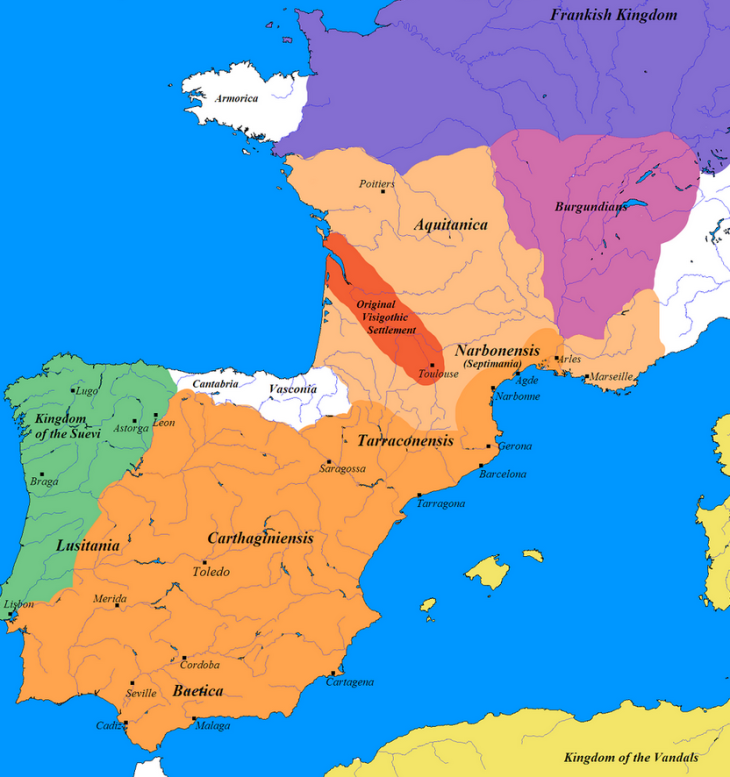
Word of the Day: Inculcate
Today’s word of the day, courtesy of the Word Guru’s daily email, is inculcate. Inculcate is a transitive verb (meaning that it takes a direct object) that means “to instill (an attitude, idea, or habit) by persistent instruction; to teach and impress by frequent repetitions or admonitions; to indoctrinate.” Word Guru goes on to explain, “Inculcate is derived from the Latin word “inculcāre,” meaning to tread or trample upon, metaphorically suggesting the act of stamping an idea or principle into someone’s mind. The term emphasizes the process of imparting knowledge, values, or skills through repetitive teaching and reinforcement. Inculcation plays a significant role in education, religious instruction, and socialization, shaping individuals’ beliefs, behaviors, and worldviews. Recognizing the power of inculcation highlights the responsibility of educators, leaders, and influencers in promoting positive attitudes and fostering personal development. By conscientiously selecting the values and beliefs to be inculcated, individuals and societies can contribute to the cultivation of informed citizens and ethical decision-makers, fostering a more harmonious and just world.”
The etymology website says that the word entered the language in the “1540s, from Latin inculcatus, past participle of inculcare ‘force upon, insist; stamp in, impress, tread down,’ from in– ‘in’ (from PIE root *en ‘in’) + calcare ‘to tread, press in,’ from calx (1) ‘heel’ (see calcaneus)” (https://www.etymonline.com/search?q=inculcate).
According to the On This Day website, on this date in 711 Tariq ibn-Ziyad and his army landed at Gibraltar to being the invasion and conquest of the Iberian Peninsula.
The history of the time before and after the conquest of Iberia is somewhat unclear. The peninsula has been inhabited for a very long time, but it wasn’t until after 700 BC or so that Indo-European speakers invaded it. Initially those were probably Celts. There had been agriculture, but with the Celts more permanent settlements developed. For a while the Carthagenians conquered part of the Iberian Peninsula. It was through Hispania that Hannibal marched his troops to attack Rome during the Second Puni War. After the Romans defeated Carthage in that war, they invaded the peninsula in 218 BC, and Rome ruled Hispania until the collapse of the Western Roman Empire.
After that collapse, the Visigoths took over the land. The Visigoths were part of the Roman Empire, and they had helped the empire fend off the Vandals and other groups from the east. They thought that they had been promised portions of the peninsula, and so they took over after the Romans left. And they ruled over Hispania until the Moors invaded starting in 711 AD, with their capital in Toledo.
“After defeating the Visigothic king Roderic at the Battle of Guadalete in July the same year, Tariq was reinforced by an Arab force led by his superior wali Musa ibn Nusayr and continued northward” (https://en.wikipedia.org/wiki/Muslim_conquest_of_the_Iberian_Peninsula). The Arabs employed Berbers from North Africa in their conquest of Hispania, but they had a history of mistreating the Berbers, probably because they weren’t Arabs. Finally, the Berbers revolted against their Umayyad overlords, a revolt which last almost four years but ultimately failed.
The Muslims did not conquer the entire Iberian Peninsula; a few small Christian kingdoms remained in the north. And eventually the Roman Catholic Church authorized the Reconquista, and eventually the Reconquista drove the Muslims out of Spain. The conclusion occurred in 1492, when the armies of Ferdinand and Isabella drove the Kingdom of Granada out of existence.
In recent decades, we have talked as a society a lot about indigenous peoples. According to the World Bank, “Indigenous Peoples are distinct social and cultural groups that share collective ancestral ties to the lands and natural resources where they live, occupy or from which they have been displaced” (https://www.worldbank.org/en/topic/indigenouspeoples). Many have been inculcated with the idea that indigenous people have a right to their lands, that colonists should return the land to the indigenous people, including the aboriginal people of Australia, the Native Americans, and the Palestinians in the Middle East.
But who are the indigenous people of the Iberian Peninsula? Can the Celts of Ireland and Scotland claim that they have ancestral rights to the land that is now Spain? How about the Italian descendants of the Romans. What about the German descendants of the Visigoths? Or perhaps the Arabs and Berbers who once ruled the Kingdom of Granada should have the right to possess the southern part of the Iberian Peninsula. How far back into history should we go to determine who has the right to a plot of land?
I have to admit that I have a personal interest in this speculation. As a person of Germanic heritage, I feel as if I should have at least a couple of acres of land in Portugal.
Today’s image is a map of the “Greatest extent of the Visigothic kingdom of Toulouse in light and dark orange, c. 500. From 585 to 711 Visigothic Kingdom of Toledo in dark orange, green and white (Hispania).” It was created by Javierfv1212 (https://en.wikipedia.org/wiki/Visigoths#/media/File:Visigothic_Kingdom.png).